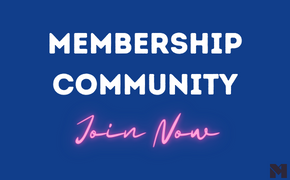When I help B-Suite leaders to increase their influence, we focus on influencing in four directions – up, down, out and across.
- Up is your boss and your executive
- Down is your team, their engagement, alignment and motivation
- Out is your external audience and your leadership brand
- Across is your peers and stakeholders
Influencing your peers has become a critical capability for B-Suite Leaders as the complexity of execution, decision-making and risk-taking increases for leaders in the middle.
We hardly execute anything completely independently anymore, that’s why silos are no longer in vogue and why collaboration is so critical to organisations.
Did you know that collaboration literally means ‘producing something together’ or ‘cooperating with the enemy’?
No matter which definition resonates with you – togetherness or enmity – the best way to become great at collaboration is through basic peer-to-peer negotiation.
Many B-Suite leaders – who are busy, under pressure, and need outcomes fast – enter these negotiations impatiently, rigidly, even confrontationally. This is an eighties version of leadership influence – go in, make demands, come out winning. It is not the mark of a poised, promotable and patient B-Suite leader.
Curb your impatience
- The Harvard Negotiation Project often writes about the derailing power of emotion in negotiating. They say it’s like throwing a bomb into the process. They often use anger as an obvious example – but in my research, it’s clear that a lack of patience has the same negative effect.
- Being pushed too fast will close your opponent down, which means they’ll no longer listen to even a logical argument It makes you look inexperienced – surely you factored in negotiation time and have prioritised reaching a quality outcome over a speedy one?
Start in Neutral
For readers who can recall driving a manual car, you’ll know that you always start in neutral. Influencing your peers is the same – without going into neutral first, you’re going to grind your gears and – even if the journey starts, you’re likely to experience a breakdown later on.
Starting in neutral means exploring boundaries and common ground – spend time to get a clear picture of each other’s goals, a shared approach or way of working, and a clear view of non-negotiables (both must and must-nots). This means you have set respectful handrails around how you manage the negotiation – which will ensure a faster resolution and a more trusting relationship – avoiding breakdowns later on.
Be flexible
- Being easy to do business with is a great reputation for a leader and this is often based on being firm on outcome but flexible on method.
- Being inflexible on method is akin to micro-managing – never appropriate, and even less so with a peer who’s help you are seeking.
- Inflexibility breaks down trust, so even if you do reach (or should I say ‘force’) an agreement you’re going to deal with cynicism and mistrust – or even them and us-ness – all the way through your collaboration.

Rebecca is Australia’s pre-eminent advocate for B-suite leadership – the expert in developing hi-impact B-Suite leadership at both a team and individual level.
Speak to Rebecca about:
- Individual and group coaching
- Team effectiveness and training
- People & Culture Advisory
You can reach her on [email protected]














